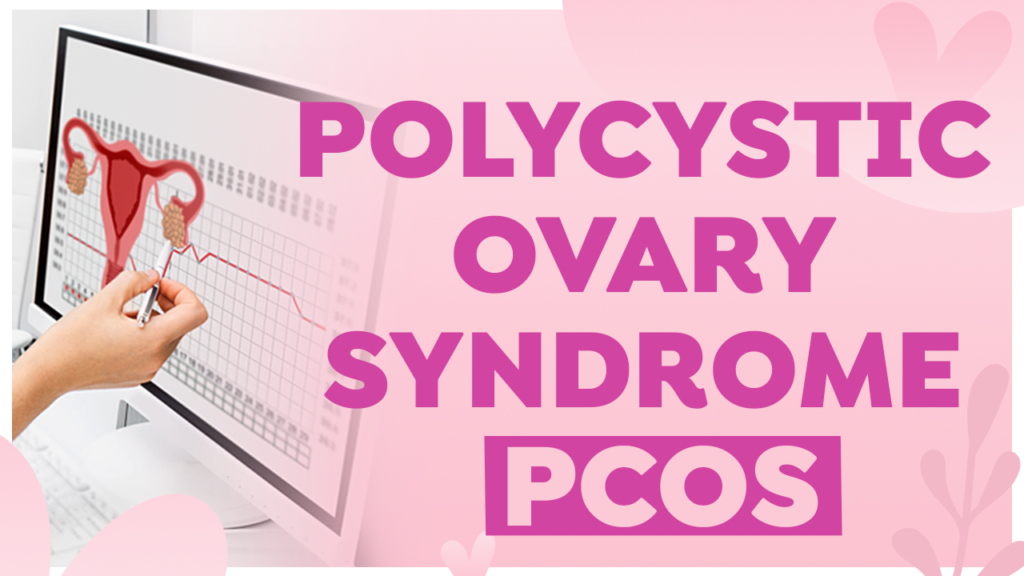Polycystic Ovary Syndrome (PCOS) is a common hormonal condition that affects how a woman’s ovaries work and affect their hormone levels during their childbearing years.

There are three main features of PCOS:
- irregular periods : which means your ovaries are not releasing eggs regularly (ovulation)
- excess androgen : high levels of male hormones in your body may cause excessive facial hair or body hair
- polycystic ovaries : your ovaries become enlarged and contain many fluid -filled sacs (follicles) that surround the eggs.
In PCOS these sacs fails to release an egg, which prevents ovulation from occuring.
If you have atleast two of these three symptoms, you may be diagnosed with PCOS.
SIGNS AND SYMPTOMS OF PCOS:
- Irregular periods / no periods
- Acne
- Excessive hair growth(hirsutism)-on face, chest or back
- Weight gain
- Darkening of the skin / pigmentation
- Difficulty getting pregnant due to irregular or no ovulation
- Male pattern baldness / hair thinning
CAUSES OF PCOS:
The exact cause of PCOS is unknown but it’s related to abnormal hormone levels in the body.
It is caused due to several factors such as Genes, Insulin resistance and inflammation in the body.
- Genes: Studies show that PCOS runs in families and many genes contribute to the condition.
- Inflammation: Being overweight causes women with PCOS to have increased levels of inflammation in their body.
- Insulin resistance: Up to 70 percent of women with PCOS have insulin resistance. Insulin is a hormone that controls sugar levels in the body. Insulin is a hormone that controls sugar levels in the body.
Many woman with PCOS are resistant to the insulin, in order to overcome this, the body produces higher quantities of insulin.Extra insulin triggers the ovaries to produce more male hormones like testosterone.
Obesity is a major cause of insulin resistance. Both obesity and insulin resistance can increase your risk for type 2 diabetes.
- Ultrasound- This test is used to look at the size of the ovaries and see if they have cysts, and also look at the thickness of the lining of the uterus (endometrium).
- Blood tests- These look for high levels of androgens and other hormones, blood glucose levels and triglyceride levels.
TREATMENT OF PCOS:
There’s no cure for PCOS but symptoms can be treated.
1. Change in diet and activity – A healthy diet and physical activity can help you lose weight and reduce symptoms.
2. Birth control pills – helps to control menstrual cycles, lower androgen levels, and reduce acne.
3. Diabetes medication – often used to lower insulin resistance in PCOS, help reduce androgen levels, slow hair growth, and help you ovulate more regularly.
4. Medications to cause ovulation- Medications can help the ovaries to release eggs normally.
